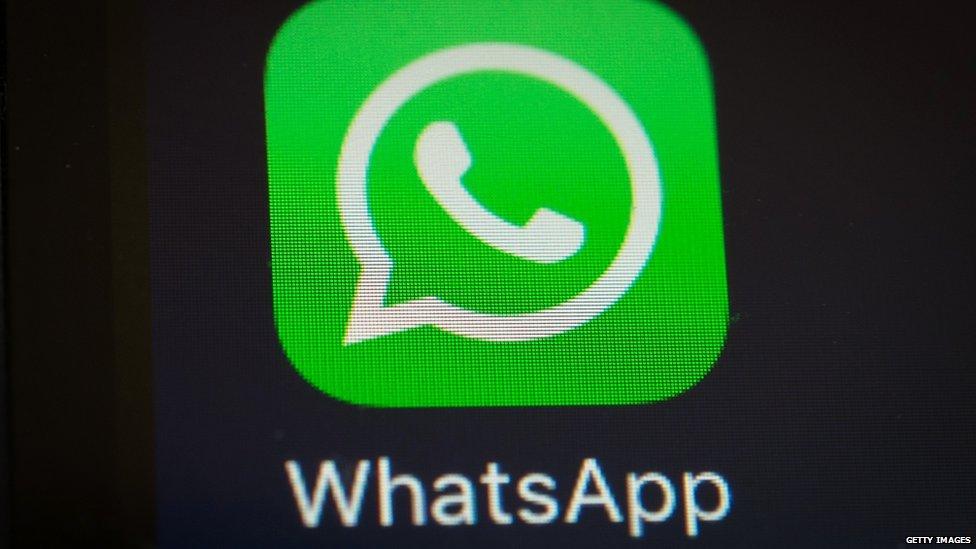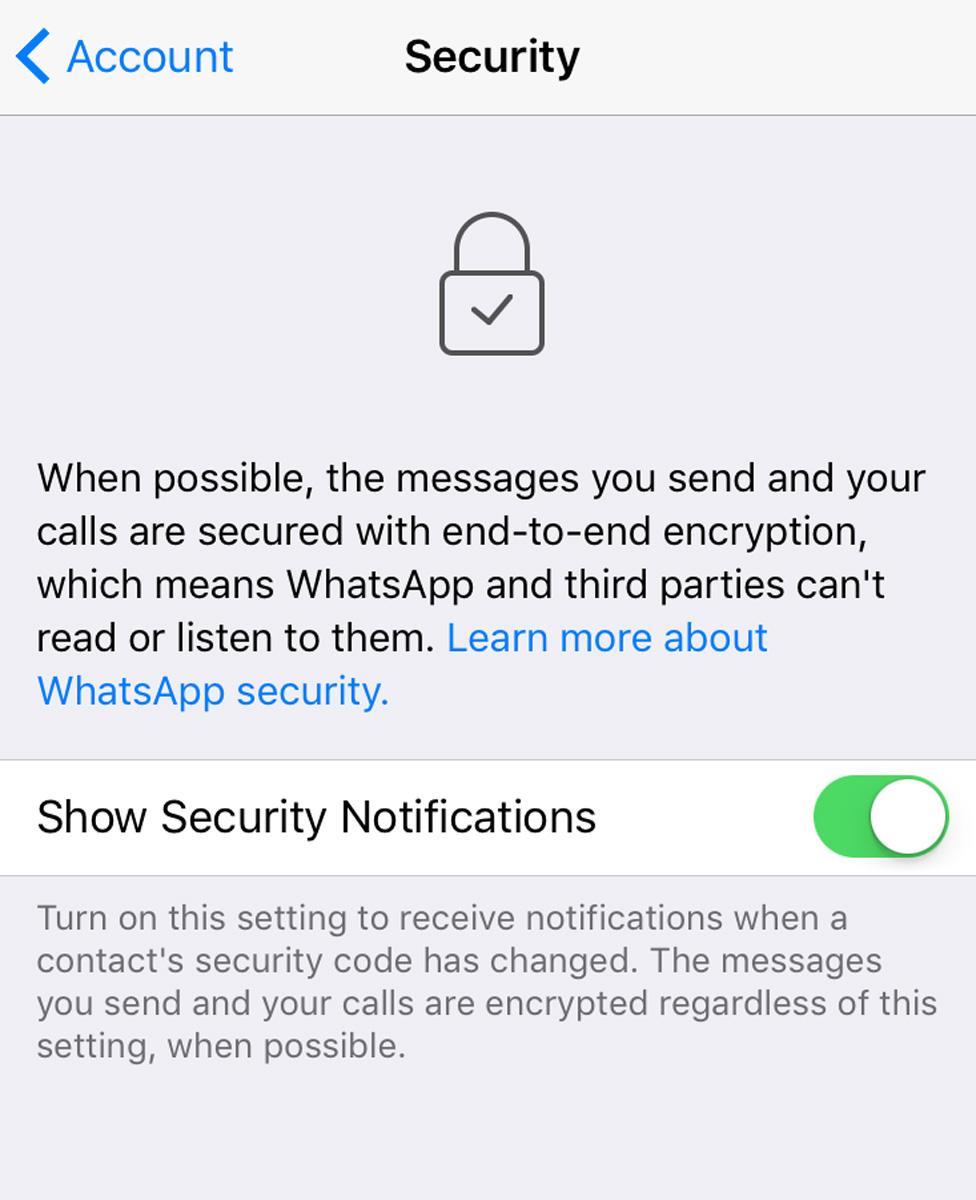Why you probably shouldn't worry about the WhatsApp security 'bug'
- Published

You might have seen reports today that a "bug" in WhatsApp means messages can be read without your permission, and without you knowing.
The bug would allow governments or law enforcement agencies to see your messages, if they requested permission, and WhatsApp granted it.
So this is likely to only concern people who send highly sensitive or secret information, such as journalists or lawyers.
Let's take a closer look.
What happens when I send a WhatsApp message?
Your words are scrambled into a code, using what's called an encryption key. You are the only person that holds that key.
Your contact has a copy of the key, so when your message reaches their phone it can be read.
This process is known as encryption, external.
It means messages can't be read by criminals, law enforcement, or anyone else who might try to intercept.
WhatsApp messages have been secured in this way since April 2016.
What about if I get a new phone?
If you take your sim card out of your phone and put it into another phone, WhatsApp will generate a new encryption key.
WhatsApp will notify your contacts of this when you send them a message, if they've got the app's security notifications on.
It also means that if your sim card is stolen by someone who knows your password, your contacts will be notified of the key change when they send a message.
In this way, WhatsApp is more secure than text messaging.

Security experts say you should switch on notifications in WhatsApp
What's the concern?
Privacy campaigners are worried governments and law enforcers could force WhatsApp to generate new keys, if they want to spy on your messages.
How likely is that?
Very unlikely, unless you're sending top secret information or contacts that governments would want to access.
Even then, they couldn't access your previous messages - only those that you send after the key has been changed.
"Anyone who's using WhatsApp shouldn't worry about it," says security expert Sean Sullivan.
But what if I'm still worried?
It's simple.
Sean recommends switching on notifications in WhatsApp.
And make sure you've downloaded the latest version of the app.
"If I'm a journalist or a lawyer, and I'm talking to a client, I would recommend [messaging app] Signal," says Sean, who's worked in computer security for 20 years.
"[But] WhatsApp is the one that I would use for my day-to-day use."
Find us on Instagram at BBCNewsbeat, external and follow us on Snapchat, search for bbc_newsbeat